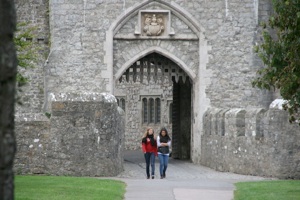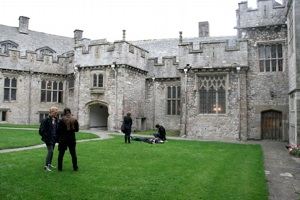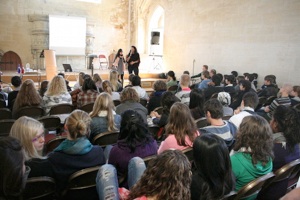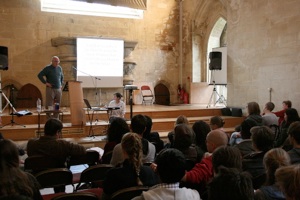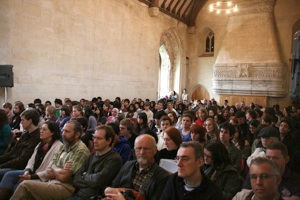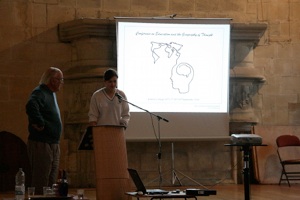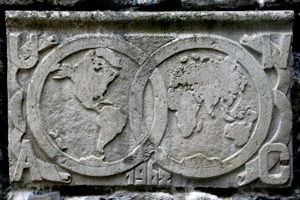“Education and the Geography of Thought” was the title of an extraordinary three-day conference that I attended at the beginning of this week at our sister school in Wales, the United World College of the Atlantic (or, more simply, Atlantic College).
Like the other UWC Heads, I had been invited to witness this “Mission Period”, as it was termed, which is an important component of the pilot program at Atlantic College to develop a new UWC-wide credential – the UWC Diploma. A “Mission Period” (or Mission Week, or Mission Day – there are several variants emerging) is designed to immerse students and their teachers in challenging lectures, workshops and activities that focus specifically on the UWC Mission.
The theme of the conference was inspired by the book of the same name (Education and the Geography of Thought) written by Richard Nisbett. Nisbett argued that people perceive the world very differently because of different environments, cultures, social structures, philosophies, educational systems and languages. This contrasts with the views of others that emphasise our similarities as one human race.
Several big questions about the purpose and nature of education emerged from Nisbett’s thesis. Notable themes picked up during the Mission Period were:
• what does recent research into the mind, brain and education suggest about how humans learn about, perceive and understand the world in which we live and the ways in which we behave?
• how is technology transforming the way we learn, think and interact with others?
• in the light of the answers to these questions, what does education need to do to develop influential young people able to make the world a better place?
The program was certainly ambitious – the entire schedule was sent to me as a finely typed 14 page document listing 28 sessions with 12 visiting speakers and 18 student leaders. Rather than trying to justice to the entire program, I will just outline five of my own personal highlights.
On Monday morning, starting at 8:00 am, there was a very stimulating 90 minute lecture by Dr Milena Penkowa on brain neuroscience and its significance for teaching, learning and developing human potential. She emphasised the importance of academic stretching and acquiring new knowledge as a means to develop and exercise neural pathways and exercise brain development in a way that creates new patterns of thinking. She related this in a very practical way to students’ lives, analysing in detail the detrimental impact on brain functioning of five lifestyle issues: sleep deprivation, alcohol consumption, poor nutrition, lack of exercise and pessimism.
On Monday afternoon I attended a session entitled “Kurt Hahn: his life, legacy and significance for Atlantic College in the 21st century”. Led by Atlantic College’s Academic Vice-Principal, Tristian Stobie, the session examined some extracts from the writings of Hurt Hahn and used these the unwrap the relevance of Kurt Hahn’s philosophy to the UWC Movement today.
Some of the conclusions reached by the students in the question-and-answer discussion were remarkable for their insights and perspicacity. Through this session, for example, the students came to realise that contrary to the poorly informed opinions many of them had formed, Hahn did believe very strongly in the importance of academic learning and examinations (though in a balance that did justice to experiential learning and service to others). Many also seemed surprised to learn just how fundamentally important Hahn believed that a spiritual dimension was as a key component in an education that aims to prepare students for a meaningful life. Finally, I think many students were also startled to learn that rather than suspension for 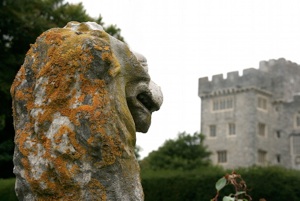
On Tuesday morning, Dr Selena Sermeño (Ambassadorial Chair of the Bartos Institute at UWC-USA) led the students through a two and a half hour session starting at 8 am on “Cultural Genograms”. As a result of this process, students were able to distinguish the differences between cultural awareness (knowledge of other cultures), and cultural sensitivity (which is the capacity to relate respectfully to cultural differences). The small group breakout sessions generated some spine-tingling feedback when fed into the final plenary meeting for this session, and it was clear that many students’ awareness and appreciation of their own cultures and family backgrounds had been sensitised and developed enormously as a result of the session.
Just before lunch on Tuesday, I attended a session given by three 2nd Year students in which they delivered a repeat (or a precursor) of their ToK presentations to 1st Year students. In each case, the presentation was relevant to the conference theme, and for the 1st Year students, it provided their first insight into the nature of the ToK (Theory of Knowledge) course which they will begin in a little over a month from now. The topics covered were (a) to what extent can feral children be considered as human?, (b) how useful are emotions as a way of understanding the world around us?, and (c) should religious conviction necessitate conformity to a certain physical appearance? As a ToK teacher myself, it was stimulating, enjoyable and refreshing to experience ToK presentations on the other side of the world – although I did need to resist the temptation to listen to the presentations with an IB markscheme running through my head!
On Tuesday afternoon, a marathon three and a half hour session was delivered by noted author and founder of the 21st Century Learning Initiative, John Abbott, on the theme of “Joining Nature to Nurture: towards an education that goes with the grain of the brain”. It was disappointing that many students were absent from this session (presumably a bit tired from the wealth of stimulating input), as I and those present found John Abbott’s address to be so eloquent and challenging that he received a spontaneous standing ovation at its conclusion. Likening a worthwhile education to the traditional notion of apprenticeships, Abbott linked his message with recent research on adolescent brain development and the philosophy of Hurt Hahn in a very powerful way to equip the students with insights on how to approach not only their own education but the wider global issues of our time from economic development to climate change. The three and a half hours seemed to pass in the blink of an eye.
As I reflect on my experience this week at Atlantic College, I realise that over the past half decade, the number of educational conferences that I have attended where I have received substantive input from others (as opposed to attending working meetings) has been pitifully small. And of course, like the conferences I remember attending in the past, this experience at Atlantic College was made much richer by the informal conversations I had with others over morning tea and lunch, including some wonderful students of Atlantic College, the visiting speakers, and of course, those of my fellow UWC Heads who were also present. It was also a special joy to meet most of the current students from Hong Kong that I had helped select for Atlantic College, and to share the joy and excitement of their Great Adventure with them.
To be frank, my brain is still swimming through the great challenges posed in each the excellent presentations I attended. I am also still trying to appreciate the full range of the implications and exciting potential of introducing Mission Periods in all the UWCs, not to mention the myriad of possible forms that the new UWC Diploma might take.
And yet, putting together the pieces of this huge complex puzzle is as important as it is exciting. As John Abbott pointed out during his presentation, quoting the former Czech dissident and later President, Vaclav Havel, “Education is the ability to perceive the hidden connections between phenomena”. For those of us who were privileged to attend Atlantic College’s Mission Period, I suspect that the questions in our minds have multiplied and expanded - but so has the range of potential elegant solutions.
